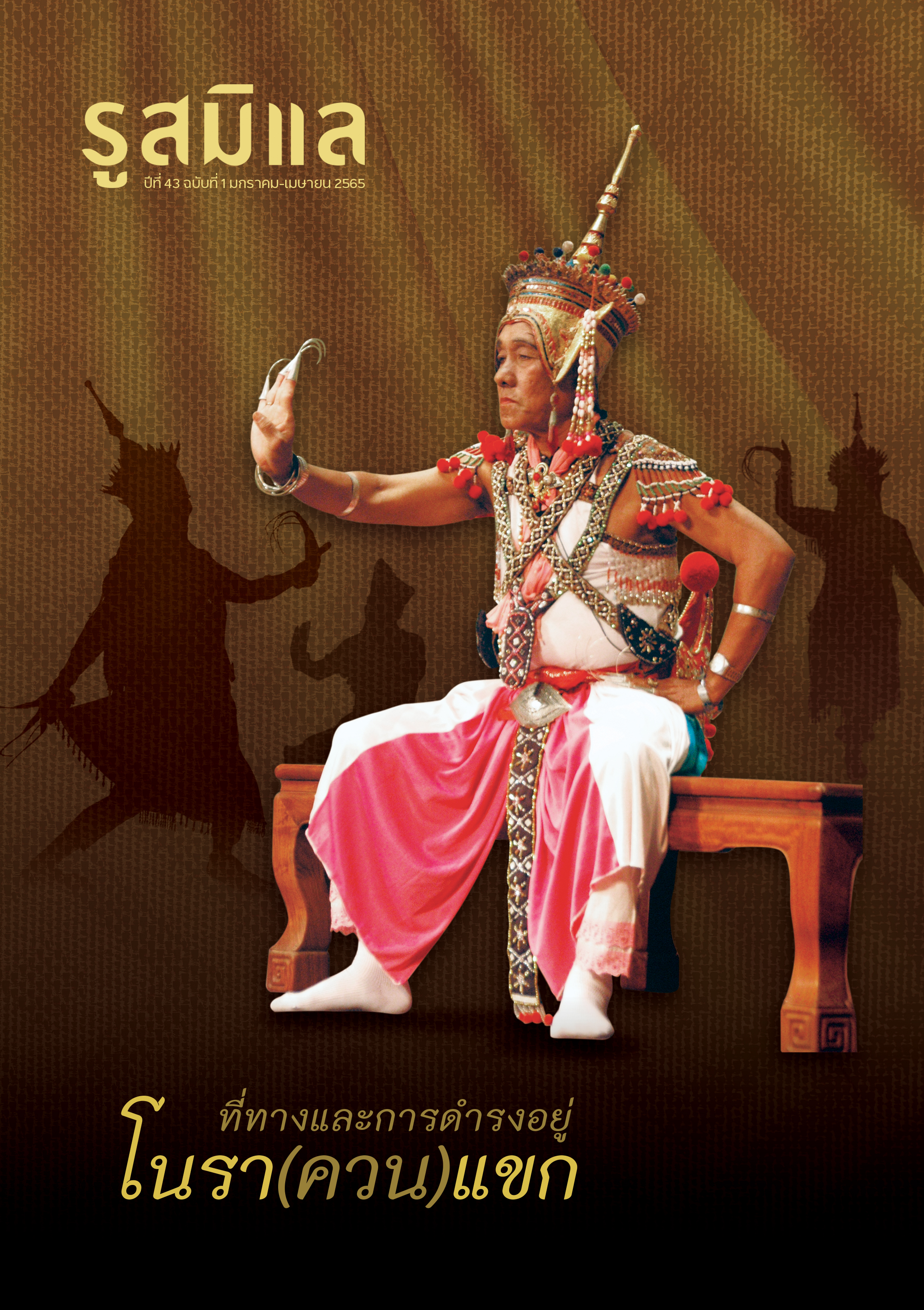Nora Culture: Existence and Inheritance in the Context of Baan Plai Ramai Pendang District, Kedah State (Taiburi), Malaysia
Keywords:
Nora Culture, Baan Plai Ramai, Kedah State (Taiburi), MalaysiaAbstract
This article analyzes the factors of succession and role of Nora. Data was collected during yearsB.E. 2554-2557. Nora is considered both oral and written literatures. Nora Rong Kru ritual is practiced to fulfill one’s vow and for cutting one’s topknot by the Nora Master. There are both female and male Noras, and it is believed that Kru Mo (Spirits of Nora Masters) were originally from Thailand having superstitious power to posses their “medium”. The result found that the factors of Nora’s inheritance consisted 1) having a Nora successor 2) belief in Kru Mo (Spirits of Nora Masters) 3) continuous and frequent practicing in Nora Rong Kru ritual nowadays, and 4) readiness of Plai Ramai community in terms of economics, strong bounds among own relatives, ability to communicate in Thai, valueing the old master’s worshiping, gratitude, sincerity, and their pride in being Siamese. Therefore, Nora of Baan Plai Ramai plays roles in helping to inherit the Siamese identity and creating shared memories for people in the community as well as entertaining, becoming a core that they hold on to, strengtheningthe community in a foreign surrounding.
Downloads
Published
How to Cite
Issue
Section
License
บทความในวารสารรูสมิแลเป็นของผู้เขียนแต่ละท่าน ผู้ประสงค์จะนำข้อความใดๆ ไปเผยแพร่
ต้องได้รับอนุญาตจากผู้เขียนตามกฎหมายลิขสิทธิ์ และแจ้งให้ทางกองบรรณาธิการทราบ
กองบรรณาธิการขอสงวนลิขสิทธิ์ในการตัดทอน/ปรับแก้ถ้อยคำเพื่อความเหมาะสม



